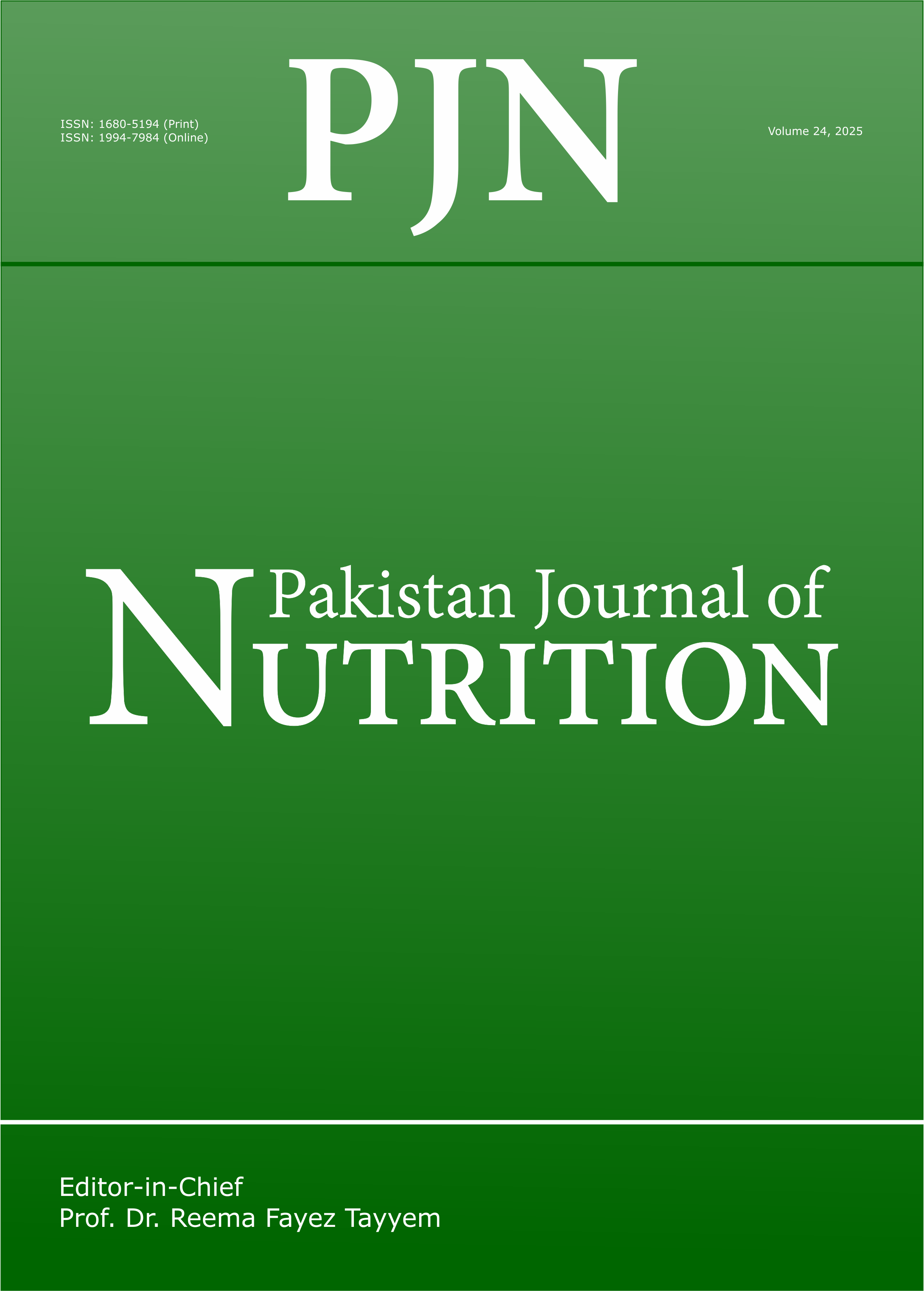Effect of Parboiling on the Composition and Physicochemical Properties of Treculia africana Seed Flours
DOI:
https://doi.org/10.3923/pjn.2008.317.320Keywords:
African breadfruit, composition, parboiling, physicochemical properties, Treculia africanaAbstract
Treculia africana seeds are used in a variety of foods like porridges, pastries and weaning food formulations. These food applications require processed seed flour. In processing, parboiling is employed for easy dehusking of the seeds for improved appeal of the products. This study was carried out on four groups of parboiled and native T. africana seed flours to investigate the effect of parboiling on the composition and physicochemical properties of the flours. Results indicate that parboiling had significant effect on the composition and properties of T. africana seed flours though the effect varied from one tree source to another. Higher yields of flour were obtained with parboiled (61.26-87.65%) compared with native (52.84-74.02%). The proximate composition, inorganic minerals, tannins and phytates levels of the flours of the parboiled were significantly lower than those of the flours of unparboiled. Flours of the parboiled seeds exhibited lower water absorption capacity and lower freeze-thaw stability than the flours of the unparboiled seeds. The RVA paste viscosity of 14% flour slurry showed that parboiling increased the pasting temperature, reduced the viscosity peak and stabilized the resultant paste to breakdown by shearing forces.
Downloads
Published
Issue
Section
License
Copyright (c) 2008 Asian Network for Scientific Information

This work is licensed under a Creative Commons Attribution 4.0 International License.
This is an open access article distributed under the terms of the Creative Commons Attribution License, which permits unrestricted use, distribution and reproduction in any medium, provided the original author and source are credited.

